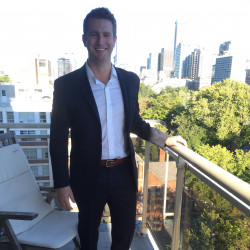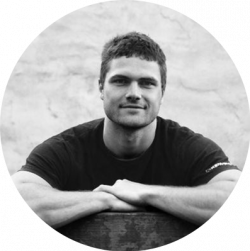New Employees - August 2017
August 1, 2017

Mike MacNeil
Mike MacNeil, CRD
As a new postdoc in the Computational Research Division’s (CRD) Analytics and Visualization group, Mike MacNeil will be working on computer vision and other algorithms to process the image-based data collected at Department of Energy facilities.
Before joining Berkeley Lab this month, MacNeil held a joint academic and industrial postdoctoral position at the University of Toronto’s Department of Medical Imaging and Synaptive Medical, a medical imaging company focused on neurosurgery. Here, he developed algorithms and software to process medical imaging data from Optical Coherence Tomography and Raman Spectroscopy.
A native of Toronto, Canada, earned his undergraduate degree in mechanical engineering at the University of Toronto, and graduate degrees in applied math at Carleton University in Ottawa and the University of Edinburgh.
“I mainly became interested in computing during my most recent position. I think my background in Applied Math gave me the expectation that the machine should work for me, developing software gave me more appreciation that I work with the machine,” says MacNeil.
In his spare time, MacNeil likes to program, exercise and meet up with friends.
Marcus Noack, CRD

Marcus Noack
This month Marcus Noack joins CRD’s Mathematics Group as a new postdoc working on theoretical x-ray scattering. Before coming to Berkeley Lab, Noack was pursing a Ph.D. in theoretical and mathematical physics at the University of Oslo.
Originally from an East German town about 10 minutes from the Polish border, Noack earned his Bachelors and Masters degrees in geophysics from Friedrich-Schiller-Universität Jena.
As a graduate student in Germany, he became interested in theoretical physics, applied math and computing. He channeled these newfound interests into his Masters thesis and developed math methods for ray tracing, wave front tracking and wave propagation. At the University of Oslo, he continued this work and picked up experience in mathematical optimization and high performance computing.
“All of this knowledge will come in handy as I work on x-ray scattering,” he adds.
In his free time, Noack likes to spend time outdoors fishing, climbing, hiking, camping, snowboarding and traveling.
About Computing Sciences at Berkeley Lab
High performance computing plays a critical role in scientific discovery. Researchers increasingly rely on advances in computer science, mathematics, computational science, data science, and large-scale computing and networking to increase our understanding of ourselves, our planet, and our universe. Berkeley Lab’s Computing Sciences Area researches, develops, and deploys new foundations, tools, and technologies to meet these needs and to advance research across a broad range of scientific disciplines.







 Instagram
Instagram YouTube
YouTube